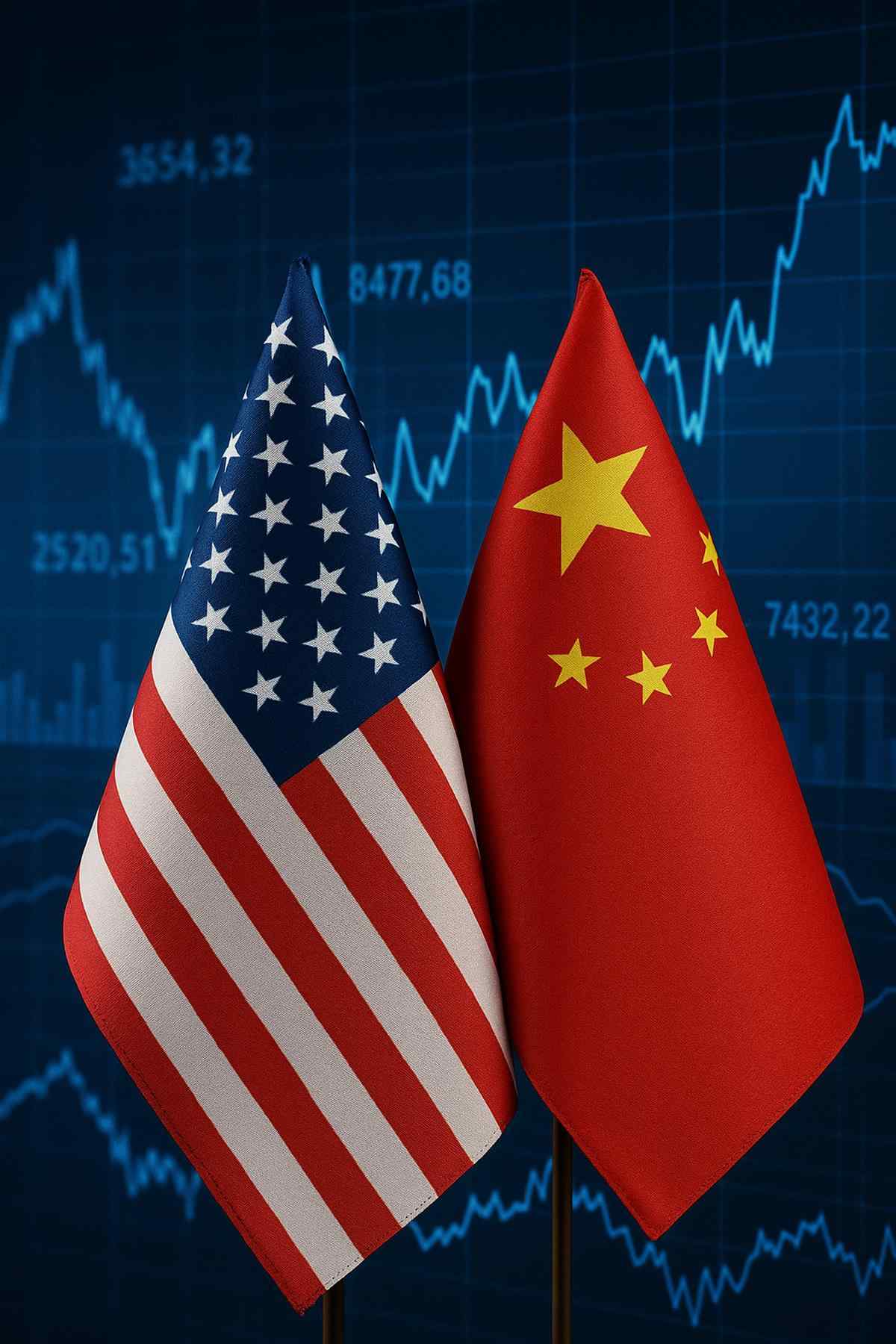The world’s two largest economies are once again at the center of global attention as tensions between the United States and China intensify, raising concerns across financial markets, trade sectors, and policy circles. The International Monetary Fund has issued a stark warning that prolonged friction between Washington and Beijing could derail global economic progress, weaken investment confidence, and slow the fragile recovery many nations have fought hard to achieve after years of volatility.
This warning comes at a critical moment when the global economy is struggling to maintain stability amid inflationary pressures, supply chain disruptions, and growing regional conflicts. The IMF’s statement highlights that even subtle policy shifts, tariff reinstatements, or technology restrictions could ripple through markets, affecting everything from commodity prices to consumer confidence. In an interconnected world, the relationship between these two economic giants determines much more than bilateral trade; it influences the health of emerging economies and the trajectory of global growth itself.
Analysts note that the roots of this rivalry run deep, extending beyond tariffs and trade deficits into issues of technological dominance and geopolitical influence. The United States continues to impose export controls on critical technologies such as semiconductors, citing national security concerns, while China pushes forward with self-sufficiency campaigns and its own innovation driven industrial policies. These moves, while domestically strategic, contribute to what economists are calling a “slow fragmentation” of the global economy. The IMF cautions that if this fragmentation continues unchecked, the world could face a scenario where investment flows and innovation networks are divided along geopolitical lines, reducing overall efficiency and productivity.
Businesses are already feeling the strain. Multinational corporations operating in both countries are navigating a minefield of regulatory uncertainty, fluctuating tariffs, and political scrutiny. Many firms have begun diversifying their manufacturing bases to regions like Vietnam, India, and Mexico in search of stability and cost predictability. While such moves reduce exposure to direct U.S. China tension, they also signal a long-term reshaping of global supply chains that may not be easily reversible. Economists warn that while decoupling may seem like a safeguard, it carries significant costs disrupted trade networks, higher production expenses, and ultimately, slower growth.
Financial markets, too, are responding with caution. Investors are wary that rising protectionism could dampen corporate earnings and limit cross-border capital flows. The IMF’s warning underscores that uncertainty is the greatest enemy of growth. Businesses tend to hold back on expansion plans, investors hesitate to take risks, and consumers grow more conservative in their spending when geopolitical conditions remain unpredictable. The global economy, already fragile from inflationary pressures and uneven recovery patterns, can ill afford another layer of instability.
Beyond economics, the U.S. China rivalry carries significant political implications. The two powers often find themselves on opposite sides of major global issues from climate commitments to security alliances—further complicating diplomatic engagement. Yet, cooperation between them remains crucial. Climate change, health security, and technological standardization are challenges that require joint leadership. Experts argue that even amid strategic competition, maintaining open communication and mutual respect is vital for avoiding escalation and protecting the global commons.
The IMF’s message serves as a reminder that economic interdependence is both a strength and a vulnerability. The more entwined the global economy becomes, the greater the need for collaboration rather than confrontation. Without coordinated efforts to reduce tensions, the world could face slower growth, higher costs, and deeper divisions. For everyday citizens, this translates to more expensive goods, fewer job opportunities, and a less predictable financial future.
The path forward depends on measured diplomacy and pragmatic economic policy. The United States and China remain indispensable players in shaping global prosperity. As the IMF warns, their actions over the coming months could determine whether the world economy moves toward renewed cooperation or continued uncertainty. In a time of fragile optimism, the stakes could not be higher.









